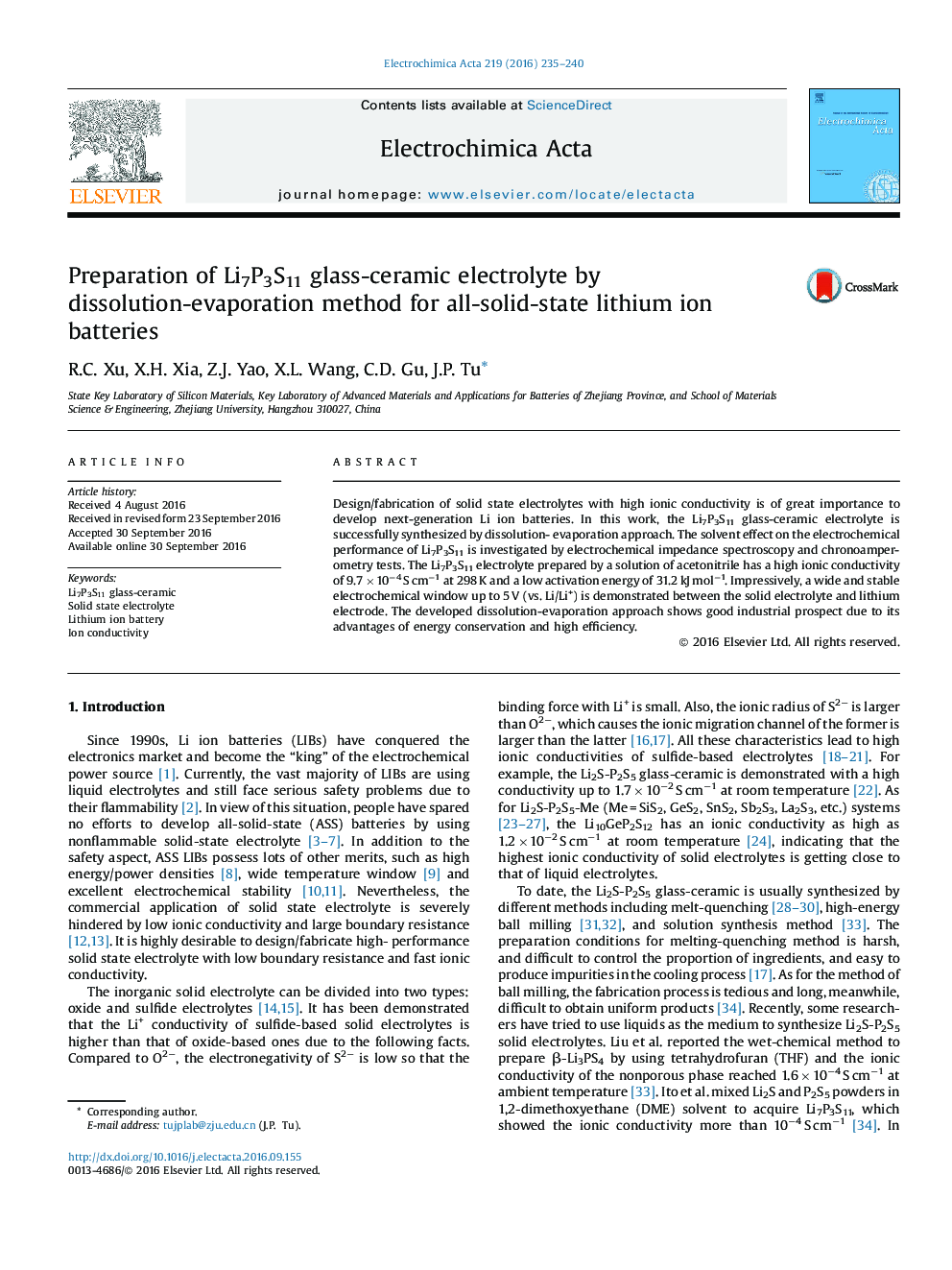| Article ID | Journal | Published Year | Pages | File Type |
|---|---|---|---|---|
| 6472894 | Electrochimica Acta | 2016 | 6 Pages |
Design/fabrication of solid state electrolytes with high ionic conductivity is of great importance to develop next-generation Li ion batteries. In this work, the Li7P3S11 glass-ceramic electrolyte is successfully synthesized by dissolution- evaporation approach. The solvent effect on the electrochemical performance of Li7P3S11 is investigated by electrochemical impedance spectroscopy and chronoamperometry tests. The Li7P3S11 electrolyte prepared by a solution of acetonitrile has a high ionic conductivity of 9.7Â ÃÂ 10â4Â SÂ cmâ1 at 298Â K and a low activation energy of 31.2Â kJÂ molâ1. Impressively, a wide and stable electrochemical window up to 5Â V (vs. Li/Li+) is demonstrated between the solid electrolyte and lithium electrode. The developed dissolution-evaporation approach shows good industrial prospect due to its advantages of energy conservation and high efficiency.
